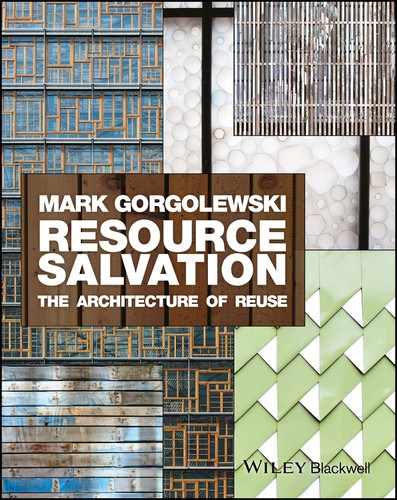Definitions
Circular Economy refers to a closed-loop model of an economy where waste is eliminated and product are sold, consumed, collected and then reused, remade into new products, returned as nutrients to the environment or incorporated into global energy flows.
Cradle to Cradle (also referred to as C2C) models human industry on nature's processes viewing materials as nutrients circulating in healthy, safe metabolisms and separates these into technical and biological nutrients.
Deconstruction describes a process of selective disassembly of a building at the end of its life to recover materials and components or systems for potential reuse or recycling. It is an approach to building removal that can extract resources so they can be used for high value future uses.
Design for deconstruction (or disassembly) describes how a building is designed to be readily taken apart at the end of its useful life so that the components can have a second use. To facilitate this, a design team needs to consider how the major systems can be deconstructed during renovations and end-of-life.
Design for durability considers extending the life of a building and its individual components. This can mean choosing long-life components but also creating adaptability in a building as a means to extend its service life and its potential for repurposing.
Diversion (waste diversion, landfill diversion) is the process of diverting waste from landfills or incinerators through various means such as reuse, recycling, composting or gas production through anaerobic digestion. Waste diversion is a key component of effective and sustainable waste management and a major policy objective of many governments.
Embodied energy/carbon is the energy (and resultant carbon emission) used in all the processes necessary to produce a material or component.
Extended Producer Responsibility (EPR) is a policy approach in which a producer is held responsible (physically and/or financially) for a product in the post-consumer stage of a product's life cycle. EPR makes producers consider what will happen to their products after first use and incentivises them to use resources in a way that allows them to have second lives.
Life cycle analysis (LCA) is a comprehensive method for assessing a range of environmental impacts across the full life cycle of a product system, from materials acquisition to manufacturing, use and final disposition. The ISO standard ISO 14040 defines the processes for carrying out LCA calculations.
Linear Economy is a consumption model of an economy where a product is sold, consumed and discarded (take–make–waste).
Reclaim is to recover something of value from a waste stream.
Salvage is typically something extracted from the waste stream as valuable or useful.
Sustainable Materials Management (SMM) is an approach to promote sustainable materials use, integrating actions targeted at reducing negative environmental impacts and preserving natural capital throughout the life cycle of materials, taking into account economic efficiency and social equity.
Virgin materials (also known as primary materials) are resources extracted from nature in their raw form, such as stone, timber or metal ore that have not been previously used or consumed.
Zero Waste is a policy concept that focuses on creating a cyclical system, reducing waste, reusing products and recycling and composting/digesting the rest, with the ultimate goal of eliminating all waste and achieving zero waste to landfill.
